Facebook Import made easy: Tips and tricks to get started today

Are you connecting with the right audience? Your ideal customers are searching around the clock, across devices, using multiple platforms. Taking simple steps like importing your audiences into Microsoft Advertising expands your reach to the 46.4 million Microsoft Search Network desktop searchers and a diverse native advertising audience on the Microsoft Audience Network. By bridging your marketing channels, you can create a more personalized experience and connect with more searchers who are ready to buy.
Expand your reach by adding quality marketing touchpoints
Touchpoints are the important interactions you have with your customers along the consumer decision journey. Adding engaging touchpoints allows you to build your brand effectively, connect with more targeted buyers, and increase conversions. With the Microsoft Audience Network, you can connect with millions across devices using a unique suite of targeting capabilities, high-quality ad placement, and highly personalized engagement. The graphic below shows the steps of the customer journey and ways to connect with customers during each step.
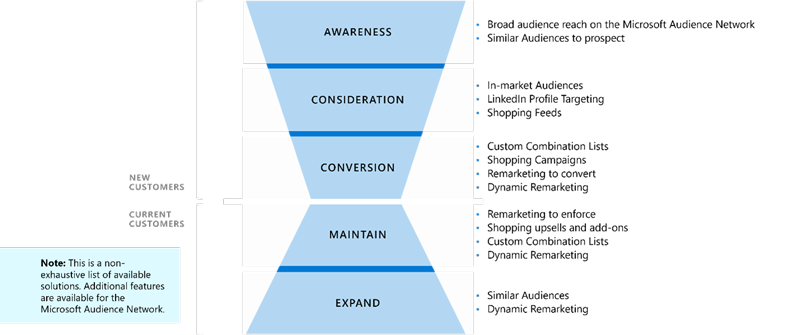
Import campaigns with Facebook Import
One easy way to scale your marketing efforts and reach your ideal audience at different touchpoints is by using Facebook Import to bring your audiences into the diverse Microsoft Audience Network.
Import Overview

Let’s take a look at the step-by-step process.
Begin the Facebook Import by going under the Import functionality in the Microsoft Advertising user interface.
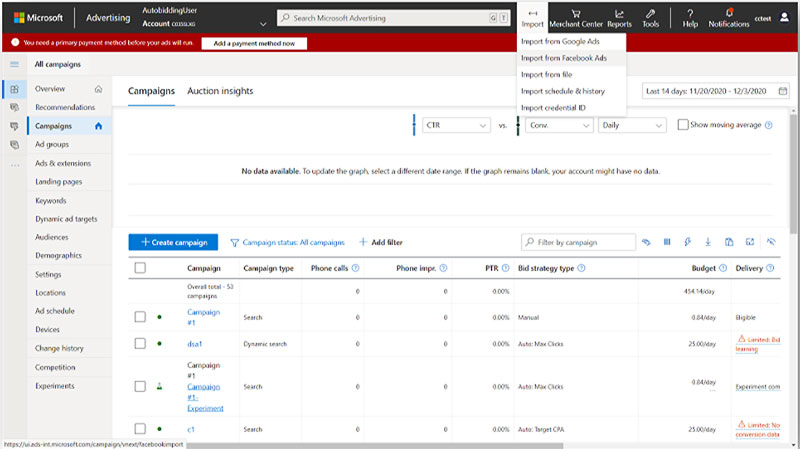
Step 1: Sign in
Choose the Facebook account you want to use for the import when you click Sign in to Facebook. Sign in with your username and password.
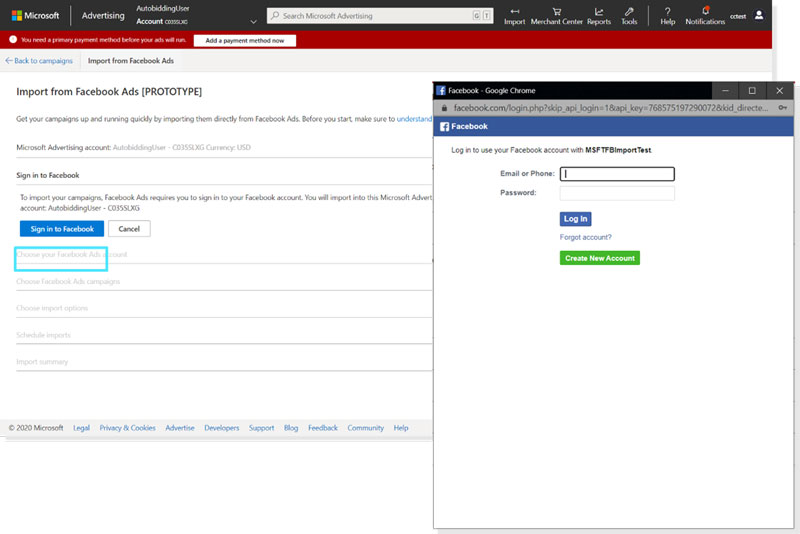
Step 2: Select audience campaigns and ad groups
Select the accounts and campaigns to import. Import all existing and new campaigns from Facebook or just import specific campaigns.
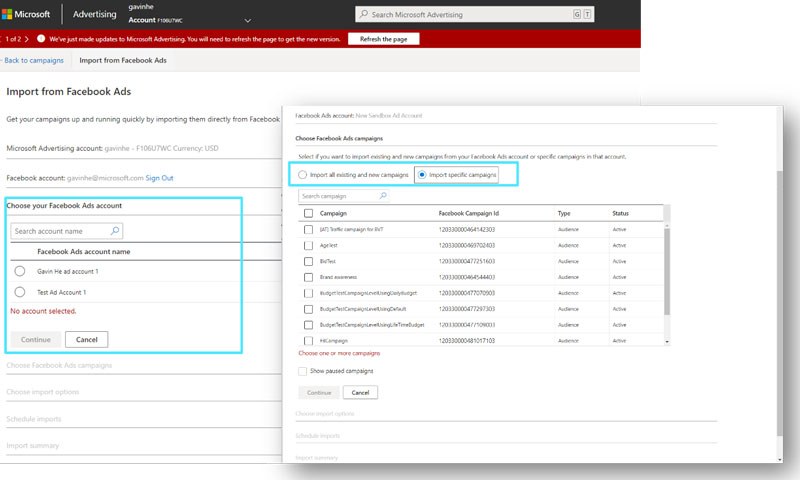
Step 3: Choose your import options
Choose your import options and adjust your Bids and budget at the campaign level.
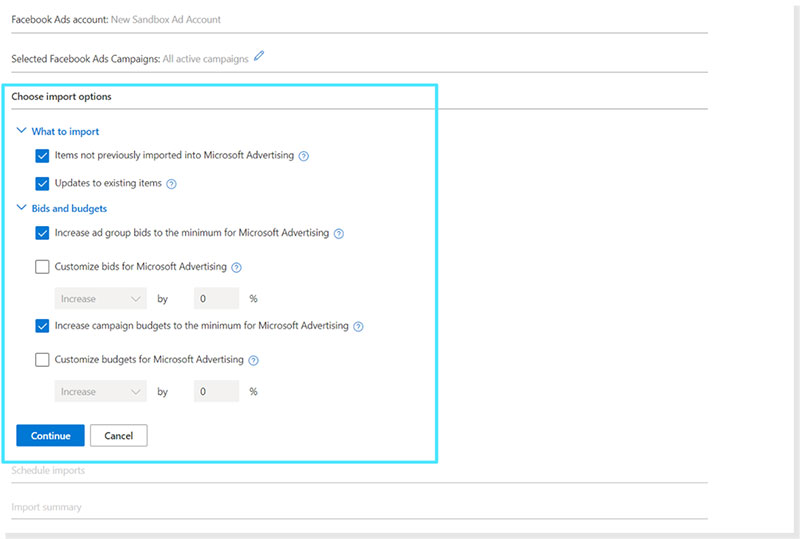
Step 4: Schedule your import
Select import now, once at a later date and time, or on a recurring basis (Daily, Weekly or Monthly). Name the import and decide how you want to be notified of completion and any possible changes/errors.
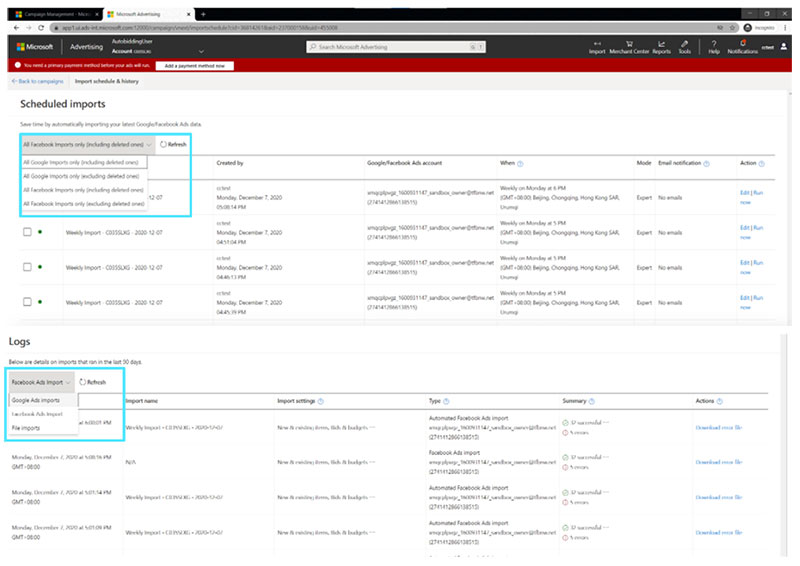
The importing process cycles through seven steps in the background so you can continue working on other tasks.
Step 5: Review and make changes
Review your import, when it was created, and when you have it scheduled to run. Review previous imports from the last 90 days with details in the changes box (see below). Check details of scheduled and previous imports from the last 90 days in the import schedule and history tab.
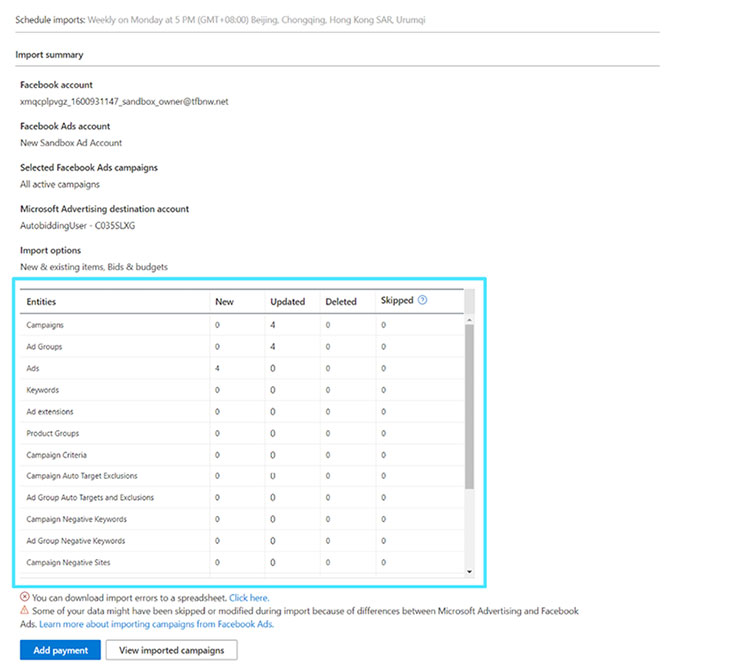
Best practices for post-import
Once you’ve completed the import, use the following checklist to maximize your ad performance:
✓ Set up your audience targeting to boost your audience campaigns’ performance
Before you get started with targeting, make sure you understand all the options available for honing in on your audience to find the customers who are searching for you. Optimize your targeting by setting up a separate campaign for each audience targeting type. There are and/or options available to deeply target your audiences, but keep in mind that if it’s too narrow, you may eliminate potential clicks. The more targeting dimensions you apply, the smaller your reach may be. Find a full list of audience targeting options in our Audience Targeting Playbook. We recommend starting with remarketing and In-market Audiences.
✓ Assess opportunities with the Audience Network Planner
Use the Audience Network Planner to gain a better understanding of your audience while planning your campaigns. The Audience Network Planner provides insight from audience targeting, reach estimation, audience composition, budget & bid suggestion,* campaign performance estimation,* campaign creation,* and persona management.*
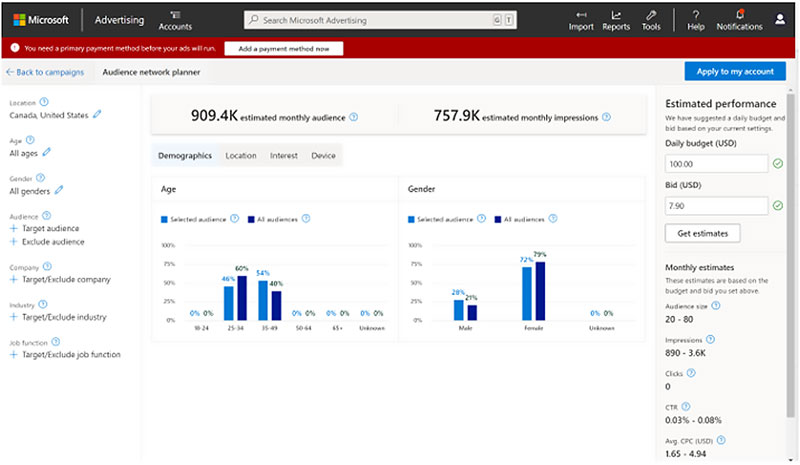
*Available for Microsoft Audience Ads for separate audience campaigns; they aren’t available for Microsoft Audience Ads for Search campaigns.
✓ Review and test your images
When creating image ads, use high-quality image files. It’s best to use high-resolution JPG or PNG images so they don’t degrade across screens. Before you upload your images, make sure they meet the following requirements:
- View the image, audio, and video guidelines
- Confirm the Microsoft Audience Network image specifications and requirements image specs and requirements.
✓ Check how your assets preview in the ad preview before you fire up your campaigns
Before launching, ensure images and text look as expected in all ad preview formats using the preview tool in your account.
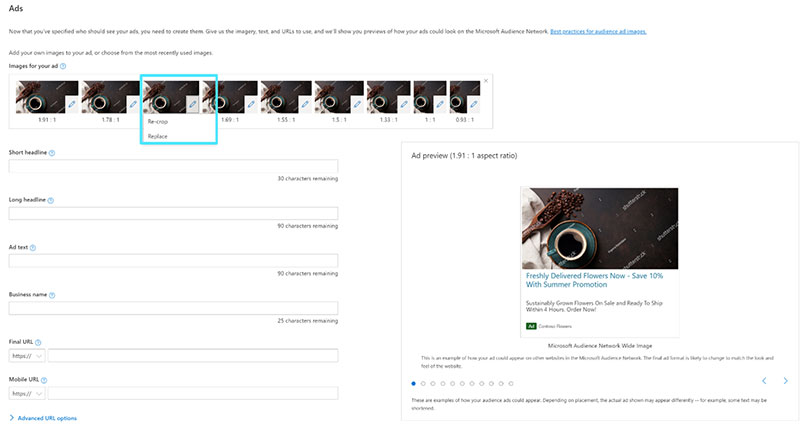
There you have it! Our import solutions are the fastest way to leverage your audiences across advertising platforms. Now that you see how easy it is to scale your audiences with Facebook Import, get started.
To learn more about the features and benefits available through Microsoft Advertising, visit our Community Forum.
SEO Company in lucknow
Comments
Post a Comment